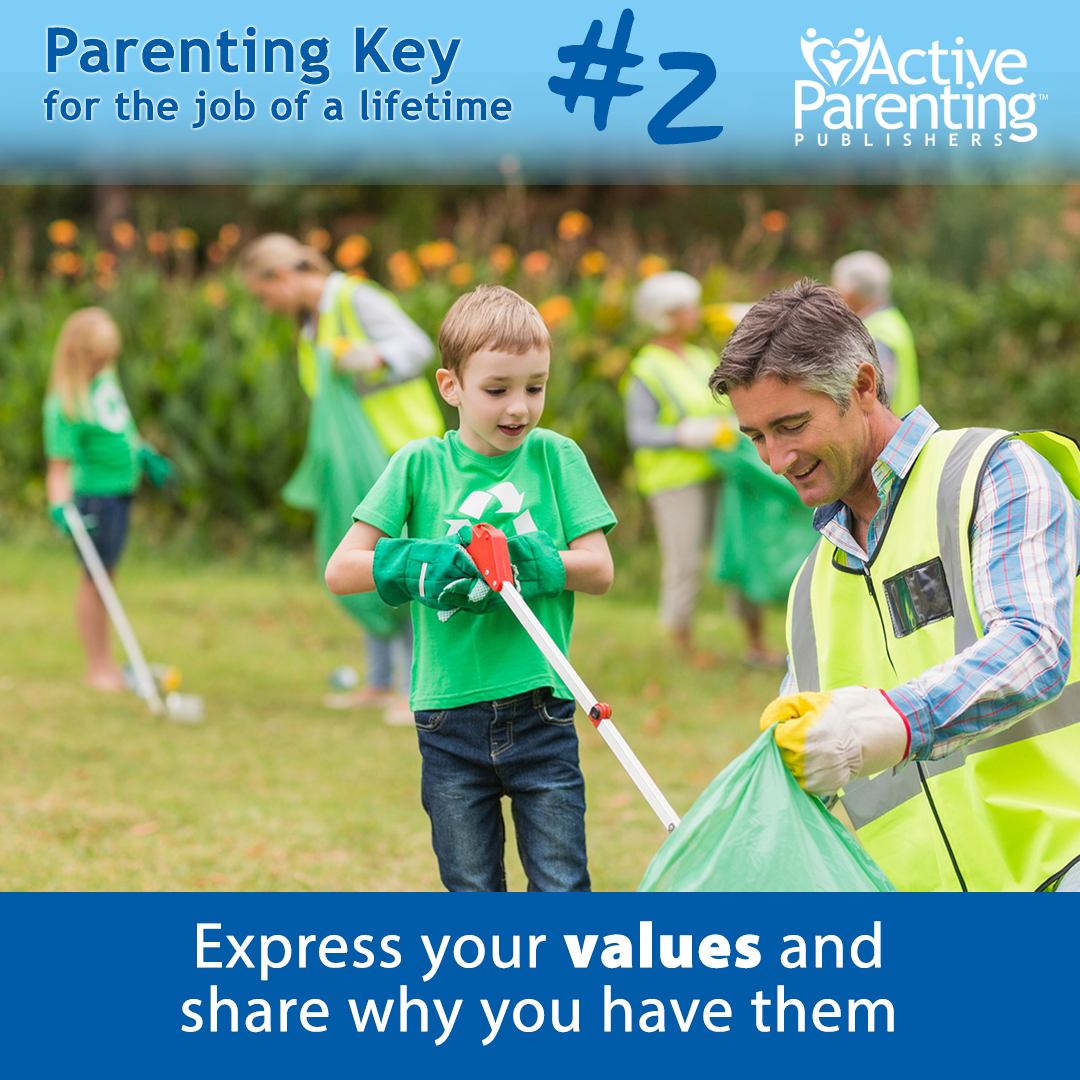
14 Aug Parenting Key: Express your values and share why you have them
“Why?” Because I’m your father/mother and I said so!
If you recognize that this age-old parenting retort is a poor answer to a good question, then you are tapping into one of the most important ways that humans can use their intelligence: to understand the purpose of decisions that affect our lives. Parents do have the authority to make decisions about the health, safety and values of their family, but that’s not what children are getting at when they ask “Why?” Maybe it would help if they used more adult language…
“Excuse me, Parent, who clearly has the authority to make this decision, but would you mind helping me develop my budding intellectual capabilities—and possibly strengthen my moral reasoning and core values in the process—by explaining the rationale for your decision? It would be so helpful. And may I just add that it will also go a long way towards heading off the impending power struggle and temper tantrum that your autocratic positioning and lack of empathy is likely to trigger.”
If you aren’t laughing, at least I hope you are crying. So often, in their hurry to get the behavior they want from their children now, parents miss these opportunities to build the character that results in positive behavior later. Thats’s right: a child’s “Why?” is an opportunity to pay into his or her future. Admittedly, there isn’t always time for discussion in these situations, so it’s certainly okay to give a quick, “Because in our family we…” and get back to a discussion on the “…” later. It also works fine to say, “We’ll talk about it more later, but right now we have to go.”
Even better is a method we teach in Active Parenting, 4th Ed. that combines three essential parenting skills—empathy, discipline, and problem-solving support:
- Acknowledge the child’s feelings;
- State the rule needed for the situation, and
- Offer an alternative that takes the child’s desires into consideration without violating the needs of the situation.
But even when this effective method is used, it is still important for a parent to come back later and talk about the values that are important in the context of the real-life situation:
“Let’s talk about why we went to Cousin Kate’s party when you would rather have stayed home and played. Sometimes it’s important to do things that make other people feel good, even when we have to give up something we want to do. This is especially important in families where we all support each other.”
Gear your family talks to the ages of your children, keeping it simple for young children and going deeper as they get older. Stay respectful of their opinions, even when they differ from yours. Who knows? You may even find yourself modifying some of your own values based on their unique perspectives.
Dr. Michael Popkin
Founder and President
Active Parenting Publishers
